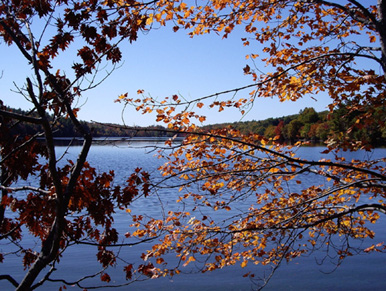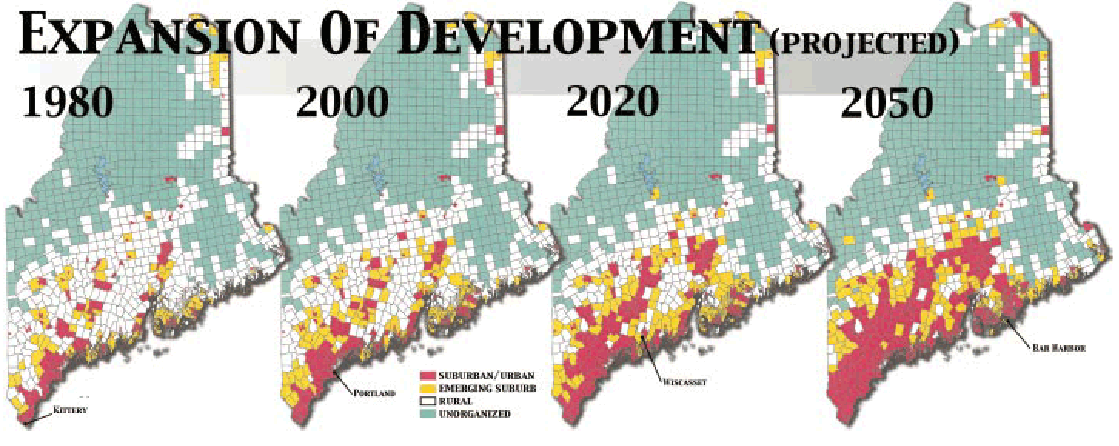 "Within a dozen miles of Bangor we passed through the villages of Stillwater and Oldtown, built at the falls of the Penobscot; which furnish the principal power by which the Maine woods are converted into lumber. The mills are built directly over and across the river.
"Within a dozen miles of Bangor we passed through the villages of Stillwater and Oldtown, built at the falls of the Penobscot; which furnish the principal power by which the Maine woods are converted into lumber. The mills are built directly over and across the river.Here is a close jam, a hard rub, at all seasons; and then the once green tree, long since white, I need not say as the driven snow, but as a driven log, becomes lumber merely. Here your inch, your two and your three inch stuff begin to be, and Mr. Sawyer marks off those spaces which decide the destiny of so many prostrate forests.
Through this steel riddle,(9) more or less coarse, is the arrowy Maine forest, from Ktaadn and Chesuncook, and the head-waters of the St. John, relentlessly sifted, till it comes out boards, clapboards, laths, and shingles such as the wind can take, still perchance to be slit and slit again, till men get a size that will suit. Think how stood the white-pine tree on the shore of Chesuncook, its branches soughing with the four winds, and every individual needle trembling in the sunlight, — think how it stands with it now, — sold, perchance, to the New England Friction-Match Company!
There were in 1837, as I read, two hundred and fifty saw-mills on the Penobscot and its tributaries above Bangor, the greater part of them in this immediate neighborhood, and they sawed two hundred millions of feet of boards annually. To this is to be added the lumber of the Kennebec, Androscoggin, Saco, Passamaquoddy, and other streams. No wonder that we hear so often of vessels which are becalmed off our coast, being surrounded a week at a time by floating lumber from the Maine woods. The mission of men there seems to be, like so many busy demons, to drive the forest all out of the country, from every solitary beaver-swamp and mountain-side, as soon as possible.

